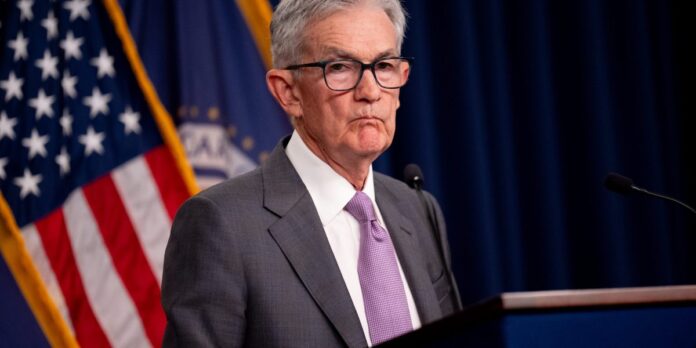The issue isn’t with the quality of the data; in fact, most of it appears to be moving in the right direction. The concern is that the Federal Reserve (Fed) is overly reliant on this data to inform its decisions, as Fundstrat Global Advisors managing partner Tom Lee mentioned in an interview with CNBC.
Lee argued that by doing so, the Fed delayed taking the necessary actions to control inflation, and now faces the risk of repeating the same mistake. “Now they’re missing the soft landing turn,” Lee explained.
According to Lee, the chances of a soft landing are increasing, but they are not guaranteed. “The key is the Fed getting off data dependence because data dependence is the reason they missed the inflation turn,” he emphasized.
These comments from Lee contrast with the Fed’s data-dependent strategy. Federal Reserve chair Jerome Powell has consistently stated that he will not reduce rates until he sees more “good data.”
Powell’s stance appears to be materializing. According to the minutes from the latest Fed meeting released on Wednesday, Federal Reserve officials “judged that recent data had increased their confidence that inflation was moving sustainably toward 2 percent.”
However, the Fed has not always been solely focused on data. The concept of data dependency is a relatively new development in the Fed’s history, emerging around the mid-2010s. This approach means that the Fed does not commit to a predetermined course of action regarding interest rate cuts and inflation reduction; instead, it bases its decisions on specific market indicators signaling actual price decreases. Previously, the Fed would sometimes determine its interest rate decisions based on a set timeline.
Critics argue that the Fed’s reliance on data sometimes puts it behind the curve, as it awaits data rather than anticipating economic trends. They also assert that relying heavily on data can be counterproductive if the data sends mixed signals, as was evident in the past year where inflation increased while consumer spending remained high.
Accurate data dependency involves discerning the essential information from the noise, according to James Bullard, former president of the Federal Reserve Bank of St. Louis. Bullard highlighted the need for policymakers to separate the signal from the noise in various economic observations to make informed decisions.
With the economy hanging delicately between a soft landing and a recession, the Fed’s ability to monitor accurately is crucial. A misstep in timing a rate cut could nullify the Fed’s efforts to lower inflation without triggering a recession and unemployment spike. Economists and investors anticipate a rate cut in September and likely another before year-end.
Lee is already looking ahead to further cuts, suggesting that more aggressive cuts would align with market expectations.




